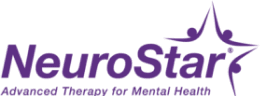
Candidates for NeuroStar TMS Therapy in Weston or Hallandale Beach
Home » Home » Candidates for NeuroStar TMS Therapy in Weston or Hallandale Beach
Transcranial magnetic stimulation (TMS) is what NeuroStar TMS therapy uses to treat several mood disorders. The FDA cleared TMS for the treatment of depression in 2008. TMS uses electromagnetic fields to target areas of the brain that are responsible for mood disorders. The electromagnetic stimulation is designed to target brain cell activity, which provides an effective and non-invasive method of treating depression and other mood disorders—such as obsessive-compulsive disorder (OCD), migraines, and depression-related anxiety.
The first-line treatment for depression is typically antidepressant medications, yet these do not work for everyone. When you do not respond well to antidepressants, your diagnosis changes to treatment-resistant depression. However, there is hope for treatment, as you may be a candidate for NeuroStar TMS therapy in Weston or Hallandale Beach.
Am I a Good Candidate for NeuroStar TMS Therapy?
Studies on the effectiveness of NeuroStar TMS therapy show encouraging results. To date, there have been roughly 6.1 million treatments performed on over 169,000 individuals who met the criteria for being a good candidate for NeuroStar TMS therapy.
Men and women in Weston or Hallandale Beach who may benefit from TMS therapy have treatment-resistant depression or depression-related anxiety or may choose NeuroStar TMS therapy as an adjunctive option for obsessive-compulsive disorder (OCD).
The current success rates are based on clinical trials that enrolled only people who had been treated with medication and who did not get good results. While the treatment protocol is safe and effective for most people, it is not recommended for all people with depression.
TMS uses electromagnetic pulses to deliver stimulation to the brain. These electromagnetic pulses can interfere with metallic devices implanted in your body, such as:
- A cochlear implant
- Pacemaker
- Deep brain stimulator
- Bullet fragments
There is a rare risk (for less than 0.1 percent of people) of developing a seizure using NeuroStar TMS therapy. People with a seizure disorder, head injury, or other neurological conditions are not good candidates for NeuroStar TMS therapy.
What Happens During a NeuroStar TMS Treatment?
During treatment, you sit in a comfortable, reclining chair that looks just like the one in your dentist’s office. A health care professional places a padded coil against your head that delivers electromagnetic impulses to the area of your brain that controls mood.
Each TMS therapy session in Weston or Hallandale Beach takes approximately 20 minutes, and a full treatment cycle requires five treatments per week, for seven weeks. The treatment does not require anesthesia or sedation, so you can leave and return to your daily activities as soon as the treatment session is finished.
Most people see some improvement in symptoms within the first one to three weeks. In some cases, your friends and family recognize changes in your mood before you do.
In clinical trials, 83 percent of people who completed their NeuroStar TMS therapy cycle experienced relief from their symptoms of depression, and 62 percent experienced remission. This means that a physician evaluation after treatment would not detect major depressive disorder.
Are There Side Effects from TMS Treatment?
If a person experiences side effects, they are generally mild. The most common side effect is pain or discomfort near the treatment site, including pain and tingling over the skin, a headache, or toothache. Some people hear tapping as the treatment is being administered.
However, these side effects are usually transient and typically disappear after the first week of treatment. While the treatment has been safe and effective in people who have treatment-resistant depression, NeuroStar TMS therapy has not been studied in people who have not received antidepressant medications. Thus, ideal candidates for TMS treatments in Weston or Hallandale Beach are those with treatment-resistant depression.
Call Today to See If You Are a Candidate for NeuroStar TMS Therapy in Weston or Hallandale Beach
We understand the challenges of living with depression and the impact it has on your daily life. If you are not satisfied with your current treatment or are unsure if TMS is the right treatment option for you, we encourage you to call our office and schedule an initial consultation to discover if you are a candidate for NeuroStar TMS therapy in Weston or Hallandale Beach.
The NeuroStar Advanced Therapy System is indicated for the treatment of depressive episodes and for decreasing anxiety symptoms for those who may exhibit comorbid anxiety symptoms in adult patients suffering from Major Depressive Disorder (MDD) and who failed to achieve satisfactory improvement from previous antidepressant medication treatment in the current episode.
The NeuroStar Advanced Therapy system is intended to be used as an adjunct for the treatment of adult patients suffering from Obsessive-Compulsive Disorder (OCD).
NeuroStar Advanced Therapy is only available by prescription. A doctor can help decide if NeuroStar Advanced Therapy is right for you. Patients’ results may vary.
Copyright © Weston Psychological Associates. 2025 | All rights reserved.
 N/a
N/a



